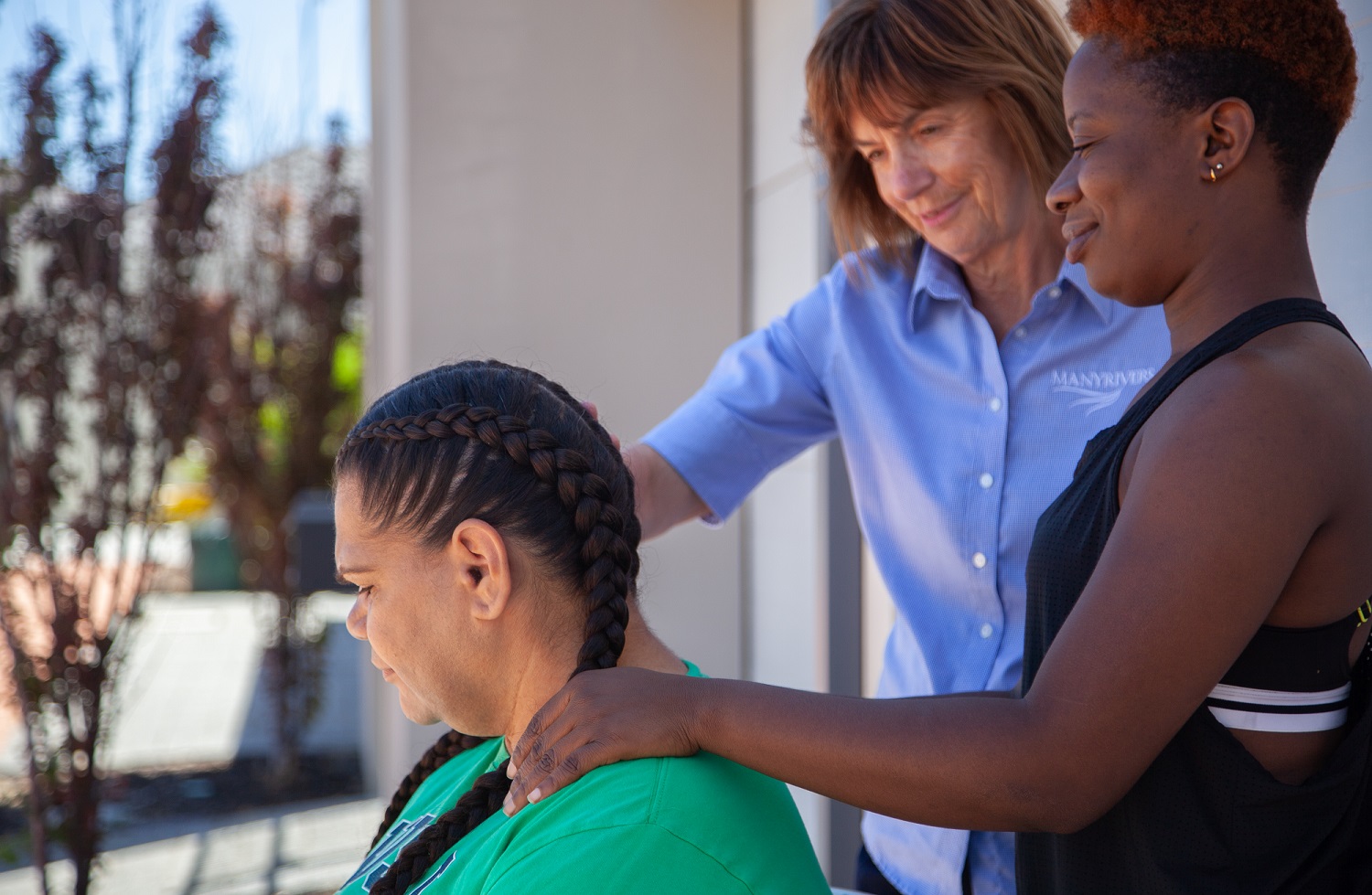
Small and medium enterprises with a green and social mission are vital for tackling global challenges
Social and green enterprises are businesses that exist to tackle a social or environmental challenge. That mission is its core purpose and drives business activities. It means the more money the business generates, the greater impact it has on society or on the environment.
Successful social and green enterprises do not rely on external donations but generate their own income, meaning they can be financially sustainable, and adaptable and create lasting change. Often the entrepreneurs who lead the most effective social or green enterprises come from the communities their work aims to serve, so they have a strong understanding of the problem they are tackling and are best placed to design the right solutions as a small or medium enterprise. A great example is Adriana Alegre Genez, whose work provides employment to rural women in Paraguay while contributing to the green economy. Or Sian Cuffy Young in Trinidad and Tobago, who wants to change how we see waste.

Adriana Alegre, YBI’s Global Summit, The Hague, 2022
Social and green enterprises are not the only mechanism for solving the world’s big challenges, but they play a key role. Global social change is not the monopoly of governments, global charities or corporations. Small and medium enterprises represent about 90% of all firms and are responsible for over 50% of employment world-wide. There is a huge opportunity when we harness business for good. This includes solving existential, adaptive challenges like climate change. We need strong leaders now more than ever, and these don’t only come from the top – they are in your community. Small and medium enterprises are making change at a local level and planting seeds that shape the future.

Being a social or green entrepreneur is hard. Like any entrepreneur, starting something from nothing presents a vast array of challenges and requires huge resilience. Being driven by an impact mission adds even greater complexity: decision making is not driven solely by what leads to profit but what helps society. Sometimes these two goals can even be in conflict.
Support for entrepreneurs is vital. Support available – whether financial, capacity building, mentoring, platforming and so on – depends on the ecosystem entrepreneurs are part of. Some are more advanced than others. A social entrepreneur in Germany has more access to funding opportunities than one in Armenia. What’s more, often funding decisions favour those able to articulate what they do well over the substance of the work. We know there is great talent deserving of support, and there is funding on offer. We need to better connect the two.

As an organisation with a global reach and network of diverse social and green entrepreneurs, we have a real opportunity to make a difference. It’s about harnessing all that good, that skill, resilience and contextual knowledge, and bringing people together to make a bigger impact. Connecting social entrepreneurs around the world so they can learn from, support and be inspired by one another. We have recently developed the second iteration of YBI’s Social & Green Toolkit, which provides practical tools and guidance to help entrepreneur support organisations take their entrepreneurs through the journey of how to build an effective social or green enterprise. This has been designed to work in diverse contexts and will be piloted this year with over 400 under-served entrepreneurs around the world.

YBI’s Global Network Group Picture, Global Summit, The Hague, 2022
We know that to create a bigger impact we need to be outward facing and collaborate with likeminded organisations outside the YBI membership. We will work to help join up the ecosystem so we’re not working in silos but learning how one thing connects to another, and facilitating those connections. Our Social and Green Month events are part of that, bringing together young social and green entrepreneurs, entrepreneur support organisations, investors, impact specialists, educators and business leaders. I’m looking forward to sharing the insights gained from that soon and our future plans.
We’re early on and there’s a long way to go but this is an invitation for collaboration. We’ll share more soon!
Other Articles
View allStrategic Advocacy and Influencing for ESOs course launches
Leading the next chapter of high-growth youth entrepreneurship: YBI’s new High Flyers Guidelines
Join our introduction to the EYE Academy for young entrepreneurs on 23 February
Those who make it possible
View all
Argidius Foundation

JPMorganChase

Hogan Lovells

Standard Chartered Foundation
